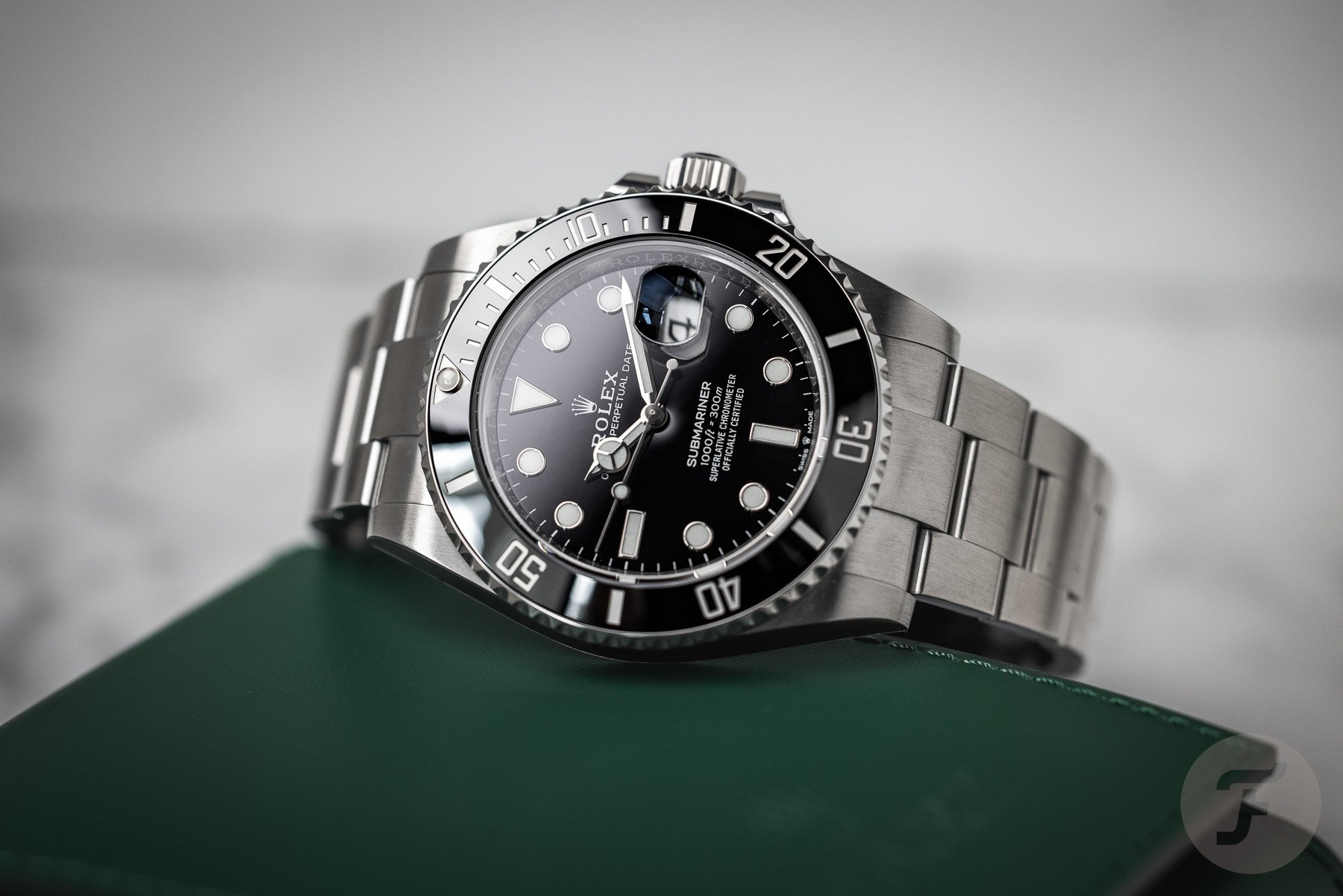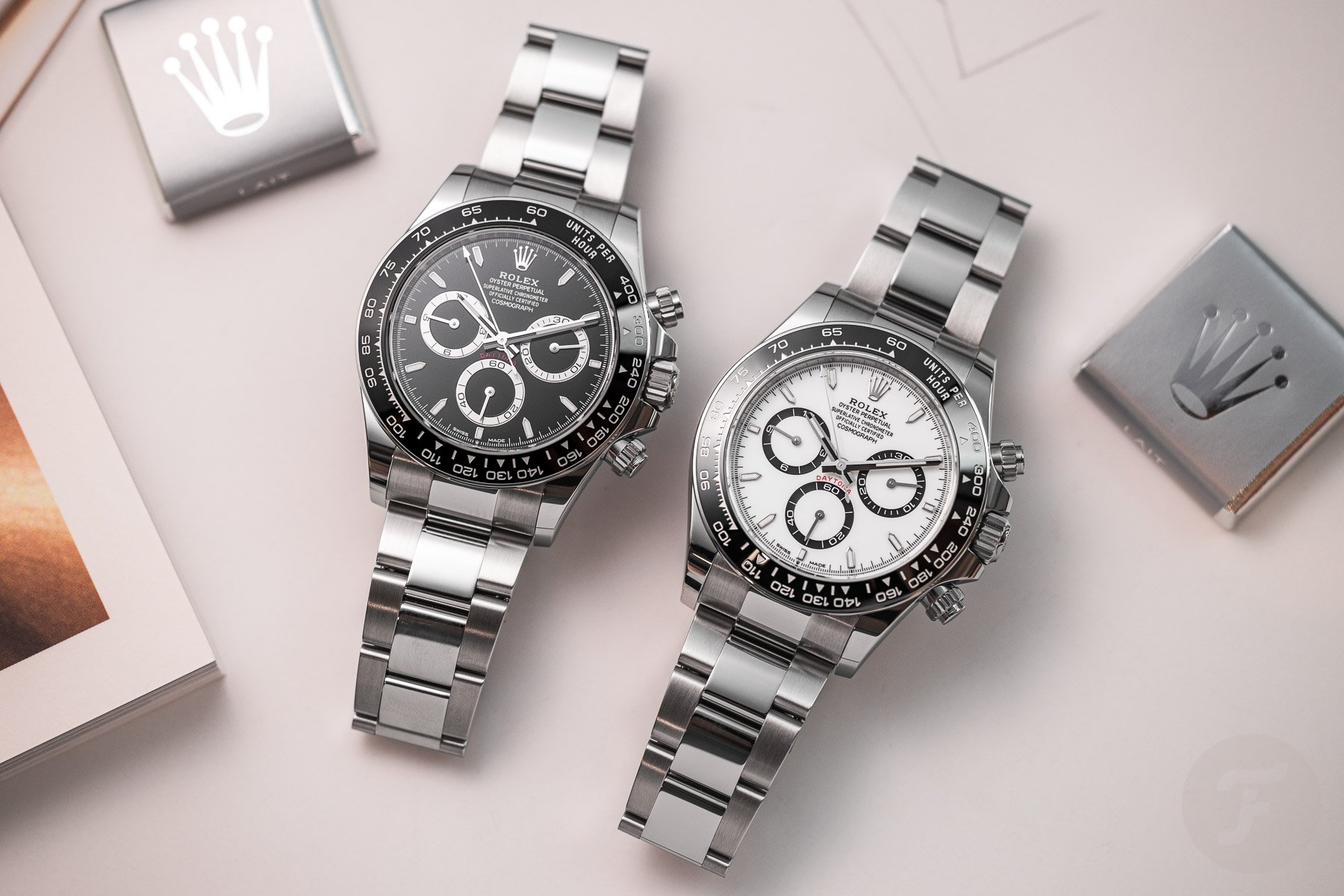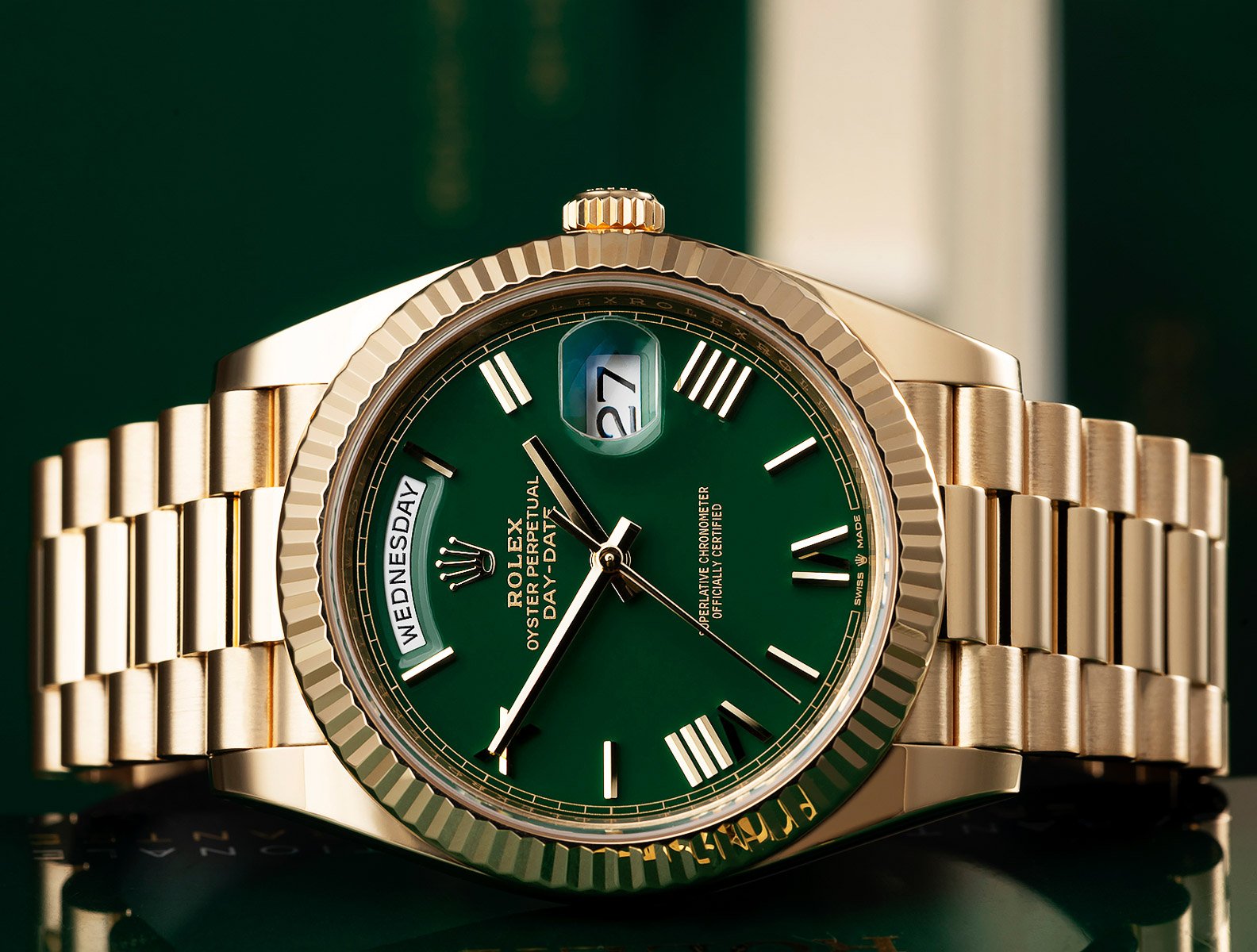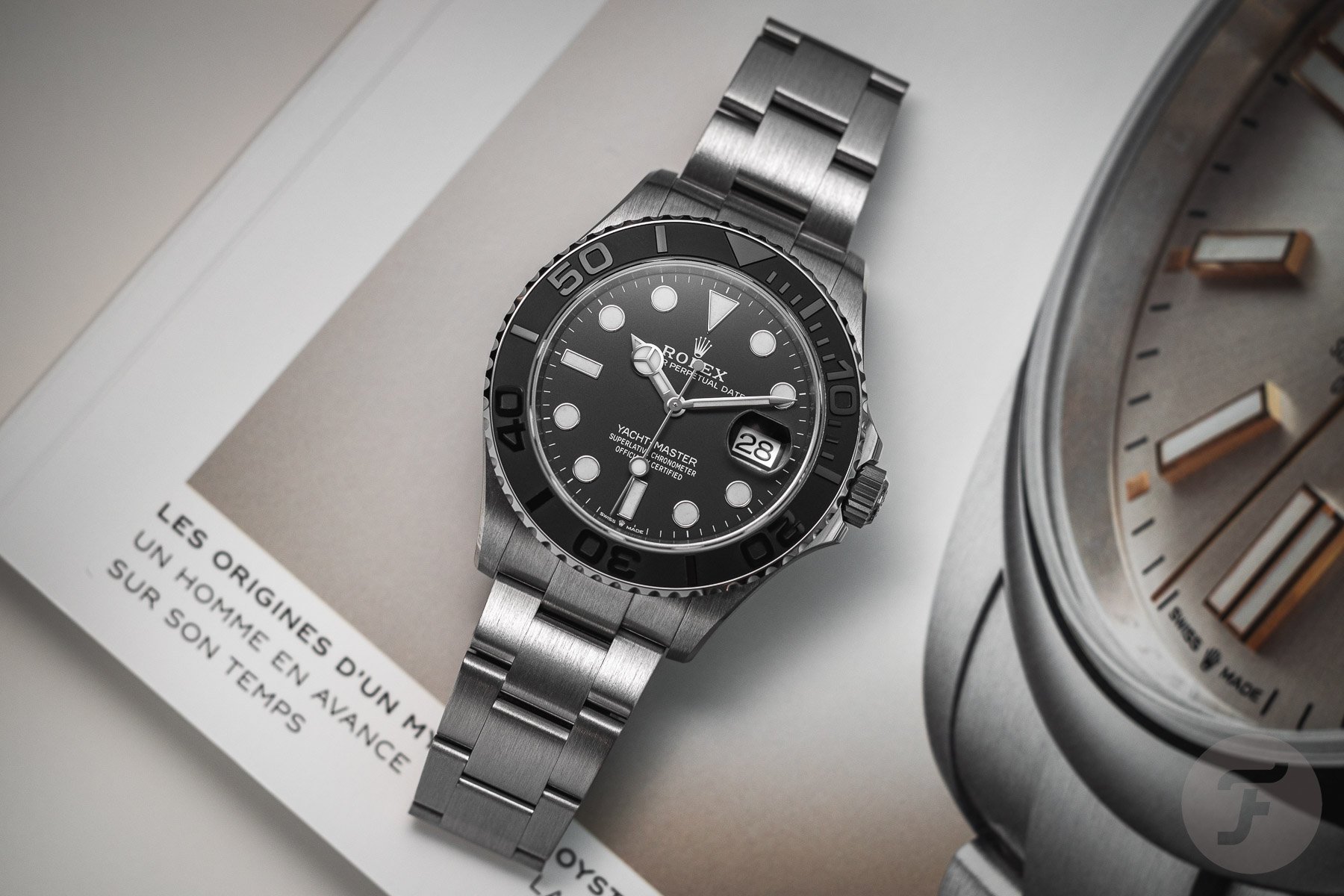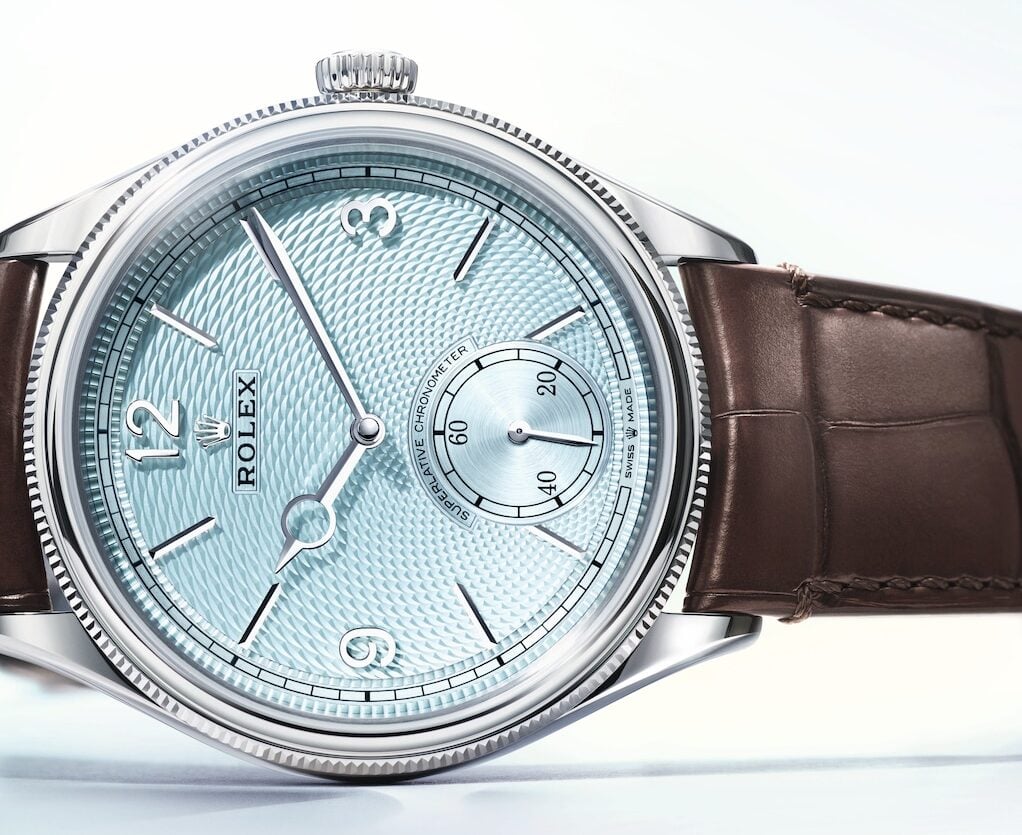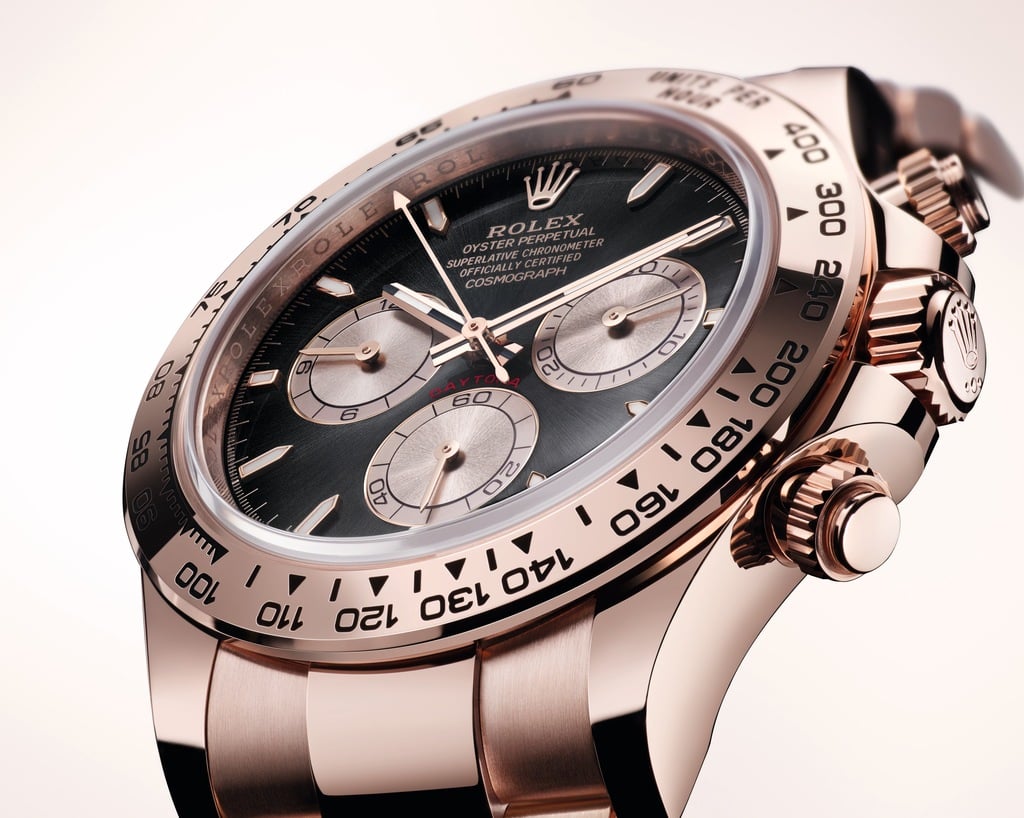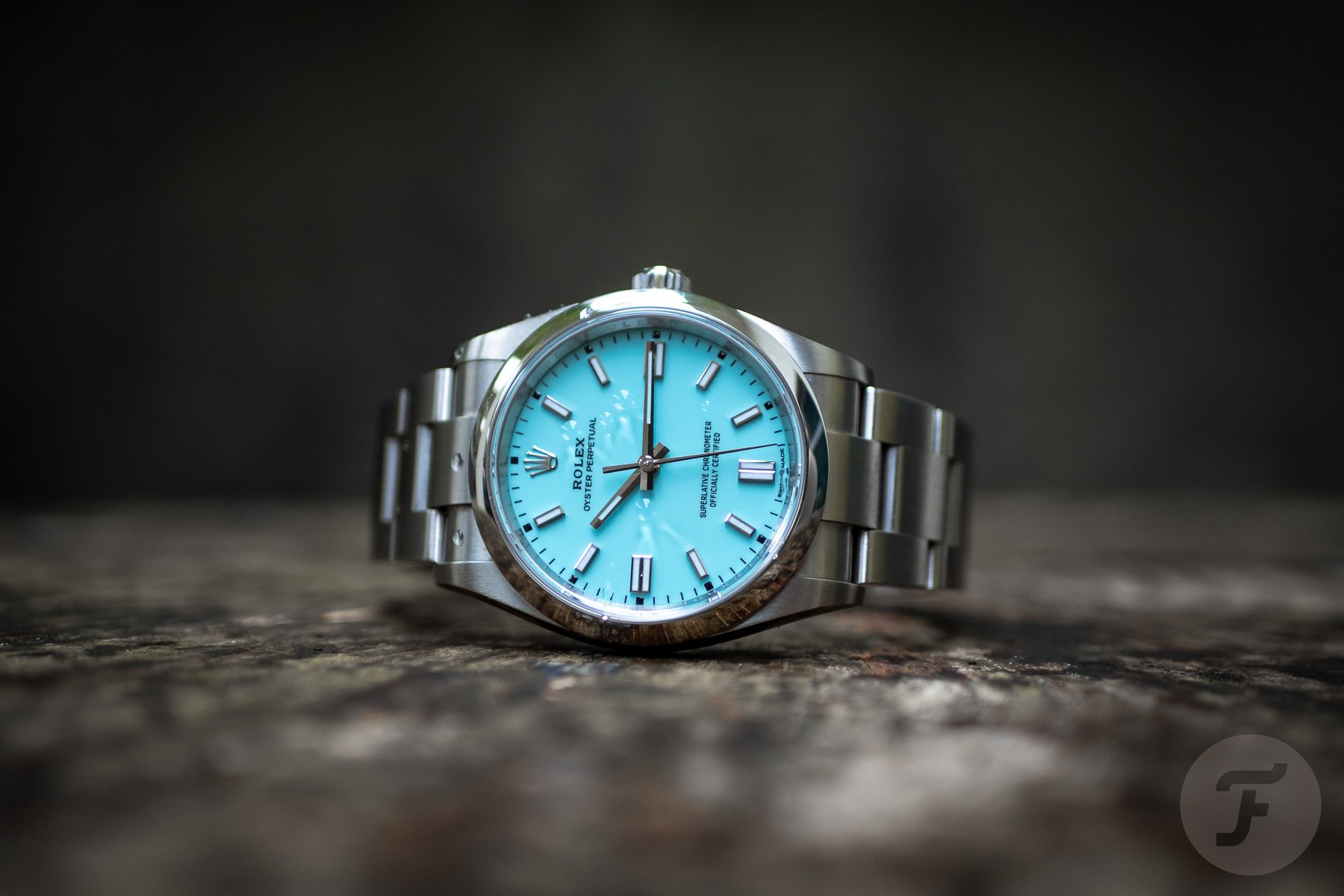Nothing Is Certain In 2025 Except Death And Taxes…And Rolex Price Increases
American statesman and Founding Father Benjamin Franklin once famously wrote, “…in this world, nothing is certain except death and taxes.” Franklin died in 1790, so the phrase doesn’t include Rolex price increases at the beginning of every year. Now, going through the entire Rolex catalog is an impossible task. Even if it weren’t, it would have led to an unreadable article. So, instead, we’ll take a random sample. Well, it’s not completely random, of course, because we’ll pick some of the most popular models in the available alloys — steel, titanium, steel/gold, full gold, and platinum.
Let’s start by giving you the 2025 Rolex price increases in percentages before turning our eyes to what changes you will read on the price tags of some of the brand’s most wanted references. Steel, Rolesium (a combination of steel and platinum in Rolex terminology), and platinum references show a 1% price increase. White Rolesor (white gold and steel) has risen by 2%, while yellow/Everose Rolesor (pink or yellow gold with steel) and solid gold pieces (white, yellow, and Everose gold) have gone up by roughly 7%. The two titanium watches —the Deepsea Challenge and Yacht-Master 42 — have gotten a 5% and 8% increase, respectively.
The Cosmograph Daytona models have also gotten separate price increases. The platinum references went up by 1%, steel by 3%, and yellow Rolesor by 6%. Non-gem-set full-gold models showed the most significant price hike of 14%. Regarding the last example, that translates to a €6,000 price increase if you buy the yellow gold Cosmograph Daytona ref. 126508 at an official Rolex dealer in the Netherlands. Until the first day of 2025, the yellow gold Daytona had a retail price of €42,800; now it costs €48,800.
Rolex price increases: what you’ll pay for some of the most wanted models now
Percentages help provide an overview, but they are also a bit abstract. Having old and new prices side by side makes things more real. That’s why we selected a few desired models in all the alloys Rolex uses, from steel to platinum, and with all the different types of gold and precious metal mixes in between. We’ll start with a very small price increase. The steel Oyster Perpetual 36 ref. 126000’s price increased from €6,300 to €6,400. The coveted and still-unobtainable GMT-Master II “Pepsi” on a Jubilee bracelet, ref. 126710BLRO-0003, also increased by €100 — it cost €11,350 last year versus €11,450 now. The same goes for the Submariner Date ref. 126610LN. This archetypal dive watch also increased by €100 from €10,700 to €10,800.
The Daytona is something special. A steel Daytona is a grail watch for many, and that’s one of the reasons it’s been so hard to get for years. Maybe because of the chronograph’s special status, its price increase is also special. The steel Cosmograph Daytona ref. 126500LN cost €15,700 last year; now Rolex wants €16,100. That’s still a bargain, though, because on Chrono24, either a white- or a black-dialed unworn Daytona 126500LN will set you back at least €26K.
Striking first gold
A mixture of steel with gold is “very Rolex.” The combination of a precious and non-precious metal arguably works best for a Datejust. The timeless steel and yellow gold Datejust 36 ref. 126233 increased in price from €13,100 to €14,550. A €1,450 price increase is significant, but when the amount of gold used in the watch goes up, the difference between old and new prices becomes even more significant. A full-yellow-gold Day-Date 40 ref. 228238 set you back €41,700 at the end of 2024, but in the new year, the price went up to €44,600 — a difference of €2,900 or 7%. Since there’s more gold in the Everose Rolesor Sky-Dweller ref. 336935 on a Jubilee bracelet, you had to pay €55,000 for it last year, but now it costs 9% more at €60,100.
Two “exotic” alloys
Titanium may not be exotic or rare, but it is for Rolex. There are just two watches in the collection made of this lightweight metal, and only one can be worn by mortals, the Yacht-Master 42 ref. 226627. It’s a rare critter and a niche product, but that supply and demand are in perfect balance. On the contrary, the watch with a 2024 list price of €15,400 goes for €25K on Chrono24 — that’s nearly as much as a steel Daytona. This year, the price of the monochromatic Yacht-Master 42 in RLX titanium went up to €16,650. A €1,250 higher price equates to an 8% increase, which is steeper than some of the price increases of some gold references. It seems like Rolex is anticipating an increase in demand for titanium, which will lead to a steady rise in price in the coming years.
Thankfully, 2025 is kinder to platinum lovers. The platinum Perpetual 1908 ref. 52506 with its exclusive light blue dial had a price of €31,500 on the label when 2024 ended. In 2025, you must bring €31,900 to the official dealer.
What to make of the 2025 Rolex price increases
On January 4th, experts from the New York-based CPM Group predicted that the average gold price would increase by 13% this year to around US$2,730 per ounce. This hardly comes as a surprise because gold prices have risen sharply since the middle of 2019. For example, as of November 2024, gold averaged US$2,370 per ounce — 21.4% higher than the 2023 average of US$1,952. In this light, a 14% price increase for a yellow gold Daytona follows experts’ predictions on the gold market. Rolex’s price increases are implemented to keep its margins on the same level in a world where some of the raw materials it uses to build watches are getting pricier. If the prices for those materials continue to rise and the margins calculated are under pressure, a second price increase could happen; forewarned is forearmed.
The higher prices are not part of a strategy like the one Patek Philippe once used to try to calm the storm the Nautilus ref. 5711 was in. By pricing it artificially high, the watch would become unattractive. Well, that was the idea, anyway. It’s a good example of a plan that backfired. If Rolex had used that pricing strategy to, for instance, ease the demand for the steel Daytona, the retail price would have shot up 30% from €15,700 to €20,410 and not €16,100.
Do the Rolex price increases make a difference?
How do the Rolex price increases affect the market? The point of the price increase is that it doesn’t affect Rolex. But how will the market react? I would imagine it will not be too shocking. If I was willing to pay €6,300 for a Steel Oyster Perpetual 36 last year, I don’t think the €100 extra I have to pay now will scare me away. And that also goes for a gold Daytona that saw a 30% price increase. If you’re in the market for a watch like that, you’d probably only refrain from buying it if you had to put great effort into scraping the wanted €48,800 together. In the higher price echelons, though, realities shift.
Concluding with an extreme example
Allow me to use an extreme example. When Meta CEO Mark Zuckerberg announced the company ending fact-checking, replacing it with a community-driven system, he was wearing a Greubel Forsey Hand Made 1, a US$900,000 watch. Now, Zuckerberg is worth US$209 billion, which translates to an annual income of around US$8.36 billion when you use a safe withdrawal rate of 4%. The average American income is US$59,200 per year. This means that US$1 to the average American is US$0.000007 to Mark Zuckerberg. And that means the Greubel-Forsey is a US$6 watch for him. But since this article is about Rolex, let’s do the math on a full-gold Daytona. Well, that watch drops below the dollar to US$0.34.
On a less extreme scale, this also works for most people in the market for a full gold Rolex. The 14% price increase can be dealt with. They will take the increase, and it won’t change their perception of the brand. They accept that nothing is certain in an uncertain world except death and taxes…and annual Rolex price increases.

